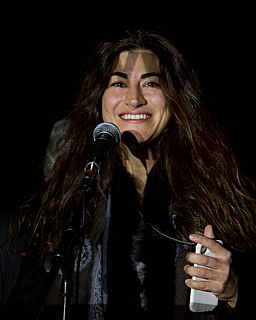A Quote by Ehud Barak
For three years now, probably more, there is a clear common interest developed between Israel and the leading Sunni moderate entities. The Emirates, Saudi Arabia, Egypt, Jordan. And the common interest is to block radical Muslim terror, to counter the Iranian hegemonic and nuclear intentions, and to join hands in a huge infrastructure project from water, energy, transportation, whatever, in the whole Middle East.
Quote Topics
Arabia
Between
Block
Clear
Common
Counter
Developed
East
Egypt
Emirates
Energy
Entities
Hands
Huge
Infrastructure
Intentions
Interest
Iranian
Israel
Join
Jordan
Leading
Middle
Middle East
Moderate
More
Muslim
Now
Nuclear
Project
Radical
Saudi
Saudi Arabia
Sunni
Terror
Three
Three Years
Transportation
Water
Whatever
Whole
Years
Related Quotes
Israel's democracy is the bedrock on which our relationship stands. It's a shining example for people around the world who are on the frontline of the struggle for democracy in their own lands. Our relationship is also based on our common interest in a more stable and peaceful Middle East, a Middle East that will finally accord Israel the recognition and acceptance that its people have yearned for so long and have been too long denied, a Middle East that will know greater democracy for all its peoples.
Sadly, a U.S. invasion of Iraq 'would threaten the whole stability of the Middle East' - or so Amr Moussa, secretary-general of the Arab League, told the BBC on Tuesday. Amr's talking points are so Sept. 10: It's supposed to destabilize the Middle East. The stability of the Middle East is unique in the non-democratic world and it's the lack of change in Iraq, Iran, Saudi Arabia, Syria, Egypt that's turned them into a fetid swamp of terrorist bottom-feeders.
I would recommend any American who wants to understand where the government is going in the next four years of George W. Bush presidency to get a copy of her confirmation hearings before the Senate Foreign Relations Committee. It's a road map, and it's pretty frightening testimony. Their definition of where democracy should go in the Middle East doesn't include Egypt, Jordan, Saudi Arabia, Pakistan; it only includes Iraq, Iran, and Syria.
I think that all countries of the region should join their efforts in the fight against a common threat - terrorism in general and ISIS in particular. It concerns Iran as well, it concerns Saudi Arabia (although the two countries do not get along very well, ISIS threatens both of them), it concerns Jordan, it concerns Turkey (in spite of certain problems regarding the Kurdish issue), and, in my opinion, everybody is interested in resolving the situation. Our task is to join these efforts to fight against a common enemy.
New security architecture is being laid down in the Northern Middle East, Lebanon, Syria, Iraq, in which pro-Iranian governments are consolidating their grip on the territory and they're backed by Russia, to a large degree. And this has caused great grief and consternation in Saudi Arabia and amongst many of the United States' allies, Israel, the Gulf countries, Turkey, because they see this new architecture of security and Iranian influence and Russian influence as something that's very bad for them.
The ironic factor that is between the Houthis and al-Qaida, that is, they both have strong anti-American sentiment. For example, the slogan of the Houthis is death to America and death to Israel and God curse the Jews and victory to Islam. And besides that, there is very little in common between al-Qaida and the Houthis as far as ideology goes, but they see themselves as having a common enemy, which is America. And America is in a situation, where the Houthis are fighting al-Qaida quite viciously on the ground, yet now the Americans are allied with Saudi Arabia in strikes against the Houthis.











































